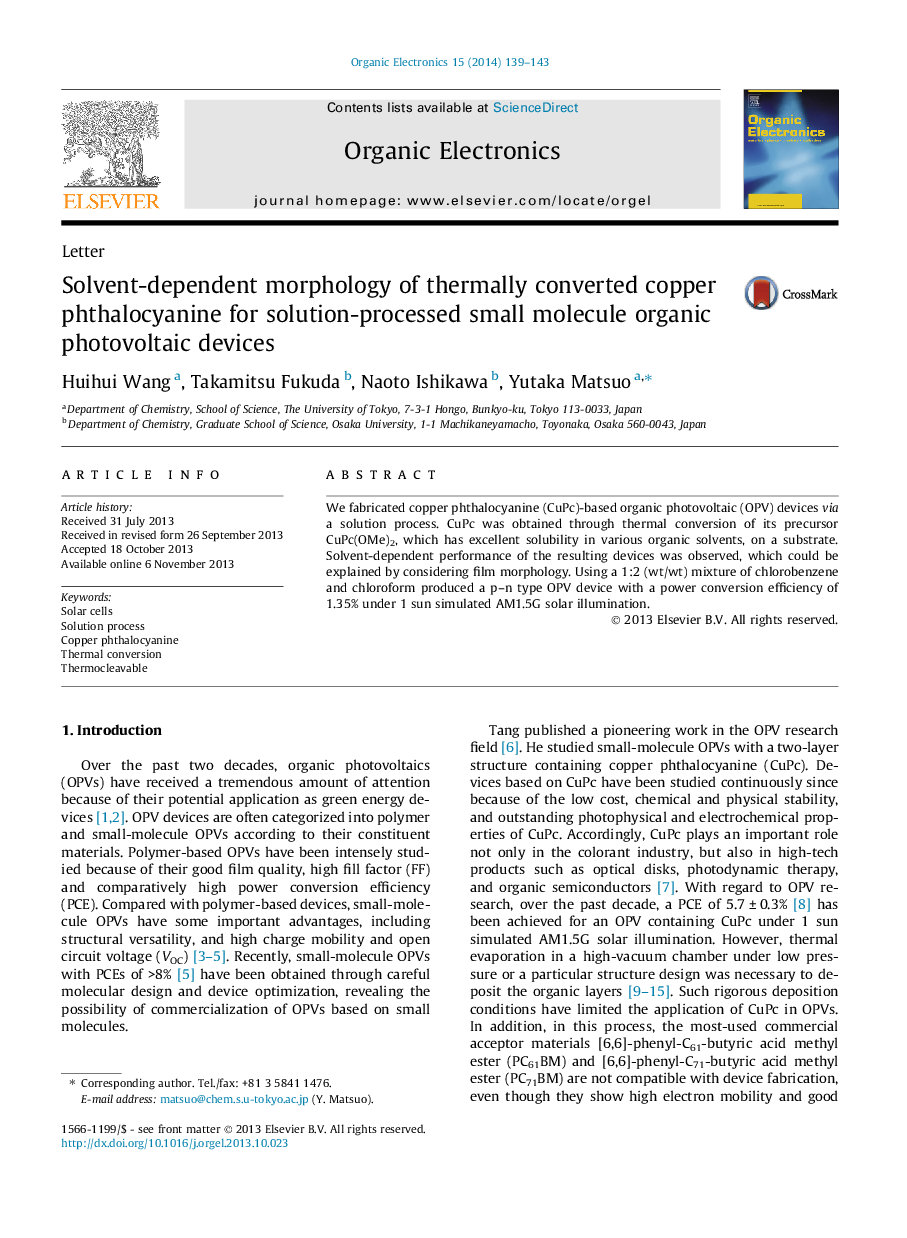| Article ID | Journal | Published Year | Pages | File Type |
|---|---|---|---|---|
| 1263862 | Organic Electronics | 2014 | 5 Pages |
•Thermo-cleavable copper phthalocyanine (CuPc) was applied to organic photovoltaic devices.•The CuPc precursor, CuPc(OMe)2, was thermally converted into CuPc on the PEDOT:PSS film at 165 °C.•The device performance largely depended on a choice of solvents used for the active layer coating.•Scanning electron microscope observation was carried out to study the surface morphology of the CuPc layer.•Solvent-dependence of performance was explained with difference in the surface morphology.
We fabricated copper phthalocyanine (CuPc)-based organic photovoltaic (OPV) devices via a solution process. CuPc was obtained through thermal conversion of its precursor CuPc(OMe)2, which has excellent solubility in various organic solvents, on a substrate. Solvent-dependent performance of the resulting devices was observed, which could be explained by considering film morphology. Using a 1:2 (wt/wt) mixture of chlorobenzene and chloroform produced a p–n type OPV device with a power conversion efficiency of 1.35% under 1 sun simulated AM1.5G solar illumination.
Graphical abstractFigure optionsDownload full-size imageDownload as PowerPoint slide
